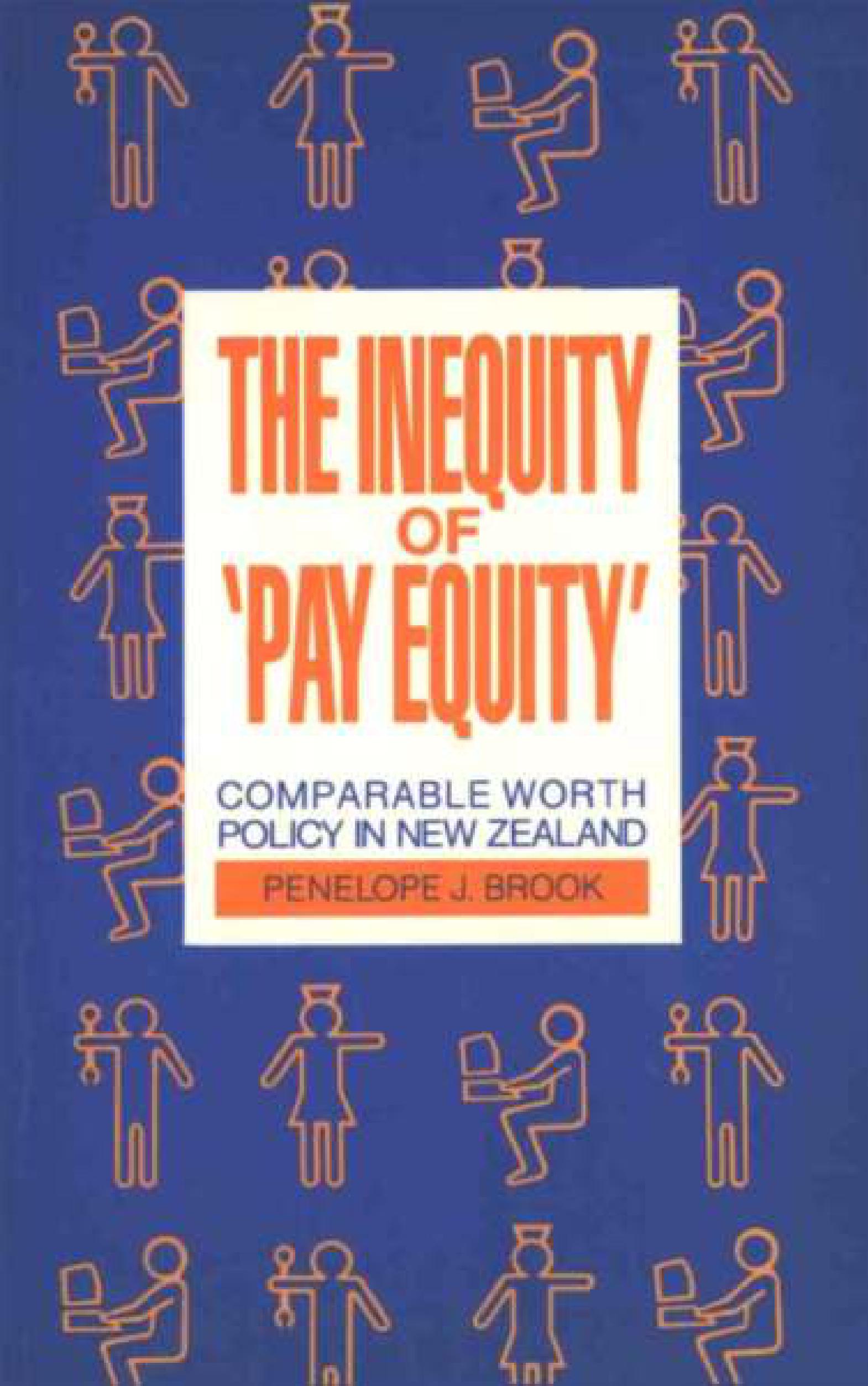
In New Zealand as in many other Western countries, pressure for women’s groups has increased in recent years for the introduction of ‘equal pay for work of equal value’, or ‘comparable worth’, as a means of eliminating the gap observed between the earnings of women and men. This gap is thought to indicate continuing discrimination against women in the workplace. Comparable worth policies aimed at closing the gap are seen as eliminating this discrimination. Such policies are designed to promote equity not by countering discrimination directly, i.e., by promoting equality of opportunity in the workplace, but by equalising incomes.
That men on average receive higher incomes than women does not in itself tell us anything about the existence of discrimination in the labour market. There are a number of reasons why women might earn less than men in the absence of discrimination These stem from the greater (if not necessarily desirable) role of women in child-rearing: a role that means that their work experience is more likely to be broke than men’s, and that their employment options arc more likely to be limited by the need to find jobs that are compatible with child-rearing.
But the fact that these factors may ‘explain’ a large part of the “wage gap’ tells us very little about whether discrimination exists in employment. Differences in wages across occupations of themselves do not indicate whether workers are being treated fairly. Instead, attention should be focused on the institutional structures within which wages are determined, to determine whether these foster discrimination. Where wages are set by the market — by free contract between workers (or voluntary association of workers) and employers — there is little scope for discrimination. Where employers must compete for workers, and must compete with one another for the favours of consumers, unfair treatment of workers, including consistently underpaying according to sex or race, is a losing game. For this reason, laws aimed at making markets work well will greatly reduce the scope for discrimination. Discrimination becomes a problem where markets are constrained: where employers don’t go out of business if they treat workers unfairly.
Comparable worth policies are not aimed at making markets work better by eliminating structural barriers to fair play. Instead, they are aimed at further constraining the activities of markets, by replacing wage negotiations with wage levels set by the courts or a central bureaucracy. This might be acceptable if it led to society as a whole, and women in particular, being made better off. But this is not the case. Comparable worth policies, by mandating increased minimum wages for ‘women’ occupations, have a number of pernicious effects. They have the potential to harm productivity, and therefore growth prospects, incomes and job security. An employer faced with a higher
wage bill has three options: to increase prices, to reduce other employment costs by demanding increased work effort or trimming employee benefits, and to cut employment
In New Zealand’s competitive environment, the first of these options is likely to be unsustainable. The second option is more likely to be adopted, but is a no-win option for workers and may still lead to lay-offs. Given the rigidity of many employment conditions under New Zealand’s system of national awards, the third option is the most likely to be adopted. In short, comparable worth will cost jobs.
Those most likely to lose their jobs (or be denied access to the workforce altogether) are the least advantaged among women; those with low skills and broken work experience. those who live in relatively depressed regions or work in companies where job security is low, and those from disadvantaged ethnic communities Any benefits of comparable worth will, in contrast, accrue to highly-skilled, articulate women in relatively ‘safe’ employment. By penalising women who are already disadvantaged, comparable worth will exacerbate income disparities between women. In this sense, comparable worth policies are not only inefficient but also inequitable.
To condemn comparable worth policies as both inefficient and inequitable is not, however, to condone the status quo. There is much in New Zealand’s existing system of regulation that protects discriminatory behaviour and limits the options of relatively vulnerable groups of workers These regulatory barriers to fair treatment must be tackled if employment equity is to be promoted.
New Zealand’s labour market law is of primary (but not unique) importance here. This law has suppressed the freedom of workers in their relationships both with employers and with unions It has been inimical to the interests of many women. For example, protected unions have had little incentive to seek work conditions that, by making more occupations compatible with child-rearing, would expose their male members to more competition from women. Reforming our labour law to give women the freedom to form their own unions, or to join any union prepared to pursue their interests, or to negotiate directly with employers, would go a long way towards reducing discrimination in employment — and raising women’s incomes.
Other regulations should be scrutinised, like the town and country planning laws, which, by placing unnecessary restrictions on the provision of childcare facilities at or near the workplace, constrain the employment options of working mothers. Policies aimed at reducing these and other regulatory barriers to the employment and promotion of women will need time to take effect. However, the introduction of policies such as comparable worth in the name of ‘hastening history’ should be resisted, not only because of the
harm they can cause to employment prospects, but because they may divert attention from the underlying causes of inequity and so perpetuate them.










